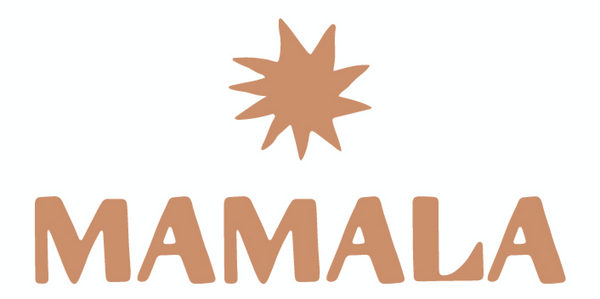How to Optimize 4th Trimester Health And Our #1 Postnatal Choice
By Ronit Menashe & Vida Delrahim
You’ve spent all of your time nourishing your body during your 9 months of pregnancy, not to mention your journey leading up to pregnancy, so now what happens? With so much of the focus on the baby throughout the postpartum journey, it’s easy to forget to focus on the mother as well!
With so much focus on the months leading up to and during pregnancy, the postpartum phase (sometimes referred to as the 4th trimester) is often an afterthought. Yet this is such a nutritionally and emotionally demanding period for both mom and baby. Even with a healthy diet and a comprehensive prenatal supplement throughout pregnancy, giving birth can still leave you depleted. Also, the need for certain nutrients increases postpartum, especially if you’re breastfeeding. And postpartum is not just the weeks immediately following childbirth but can last several months or longer for many!
What is the fourth trimester?
The "fourth trimester" refers to the crucial and often challenging three+ month period following childbirth, where both the newborn and the parent undergo significant physical, emotional, and psychological adjustments. Whether or not you are breastfeeding, the postpartum period is essential to ensure you are nourished and replenish your body after giving birth.
Nutrients to Focus on in Postpartum:
There are specific nutrients to keep in mind that your body will need in that “4th trimester” to support mom’s physical recovery as well as her mental health. There are also a few lifestyle factors that can promote a sense of wellbeing that I encourage you to incorporate to the best of your ability. But first, my top 4 healing nutrients:
- Vitamin D. Low vitamin D has been linked to postpartum depression, anxiety, fatigue, poor immune function, and bone pain/weakness. In fact, studies have shown that low vitamin D postpartum is associated with greater risk for postpartum depression. Taking 4,000IU daily has been associated with higher blood levels and is more likely to get through breast milk to provide baby with the vitamin D they need compared to the outdated recommendations of 600IU.
Food sources: fatty fish (wild-caught salmon and sardines are best), egg yolks, fortified dairy, and mushrooms exposed to UV light. Note- even with vitamin D rich foods in your diet, it’s unlike you will get enough through food alone.
- B vitamins are necessary for many of the body’s essential processes, including energy production and forming DNA. One B vitamin worth highlighting for postpartum support is B6 which helps the body make serotonin, the feel-good hormone! This is why low levels of B6 have been associated with postpartum depression.
Food sources: liver, seafood, eggs, green leafy vegetables, legumes, and dairy.
- Iron is key to rebuilding blood that was lost during childbirth. This is especially important if you struggled with low iron throughout pregnancy or if you follow a strict vegetarian or vegan diet. If you’re breastfeeding, the iron in your breastmilk supports proper infant thyroid function. Adequate levels of iron are associated with more desirable levels of energy. Foods richest in iron are those that are animal-based, and because we’re often on the go, grabbing what we can postpartum, it can be hard to get in enough iron.
Food sources: oysters, liver, red meat, white beans, and green leafy vegetables.
- Omega-3 fatty acids are anti-inflammatory and may protect mom against infection and postpartum depression. If you’re breastfeeding, infants of mothers with a high concentration of DHA in their breast milk are seen to have improved brain and vision development.
Food sources: fatty fish (wild-caught salmon and sardines are best), fortified eggs, dairy, avocados, EVOO, nuts/seeds and some types of algae.
- Protein with every meal! Collagen, whether in the form of a collagen-based protein powder or cup of bone broth, will be important to provide healing amino acids. Vitamin C plays an important role in collagen production, so focusing on fresh fruits and vegetables will also increase the body’s collagen.
Food sources: Other forms of protein such as eggs, fish, chicken, and nuts and seeds, will provide essential amino acids for rebuilding and repairing muscle and tissue.
- Prenatal vitamins -- even after giving birth
While it is well known that prenatal vitamins should be taken during pregnancy, there is actually significant evidence that prenatal vitamins should continue to be taken postpartum. The American College of Obstetricians and Gynecologists recommend taking prenatal vitamins as long as you are breastfeeding, but there are benefits to taking them for at least 6 months postpartum. Continuing to replenish key nutrients lost during birth, breastfeeding, and overall supporting individuals through sleep deprivation and hormonal shifts, is an important goal during the fourth trimester.
WeNatal is the #1 choice because not only does it contain the optimal forms of each nutrient to ensure maximal absorption but in the optimal/research backed levels as well. It was formulated in a way to support not only the prenatal and perinatal period but also the postnatal period with optimal levels of 24 essential micronutrients to support gaps you may have in reaching those essential nutrient requirements. These nutrients are vital for energy production, maintaining bone health, and supporting the immune system, which is especially important in the postpartum period. By continuing to take a high-quality prenatal supplement, mothers can help ensure they are getting the necessary nutrients to support their health and the health of their baby.
Here are a few strategies to nourish yourself in Postpartum:
In addition to nutritional support, there are other things that can help you move through this phase with grace, even if there are bumps along the way!
- Find your community. You know the phrase “it takes a village?” This doesn’t just refer to raising a child, it also takes a village to support parents postpartum. Having help with day-to-day tasks such as grocery shopping, meal preparation and spending time with baby so you have time for a nap in the weeks immediately after childbirth can be a lifesaver. And as you get farther out, having people who can offer their ear or a shoulder to cry on can make all the difference.
Postpartum is a time for healing, bonding, and nurturing. It is one of the most sacred times in your life, so be sure you have what and who you need to thrive! And although the postpartum period is a beautiful time for you and your family, it may also be a stressful and overwhelming time, so it is important to remember to prioritize yourself and your health. Take a deep breath and know that you are not alone in this journey!!
Author: Ronit Menashe & Vida Delrahim
WeNatal CoFounders
Best friends since meeting at Nike over 16 years ago. Pregnancy loss, just a week apart, changed their career trajectories. As they dug into the research they realized that there was a major need in the fertility and pregnancy industry - a good quality prenatal for BOTH women AND men. Backed by cutting-edge research and the endorsement of industry-leading experts such as Dr. Mark Hyman and Kelly LeVeque, WeNatal sets a new standard for prenatal supplements, offering a meticulously formulated blend of 24 essential nutrients crafted from 100% clean ingredients.

